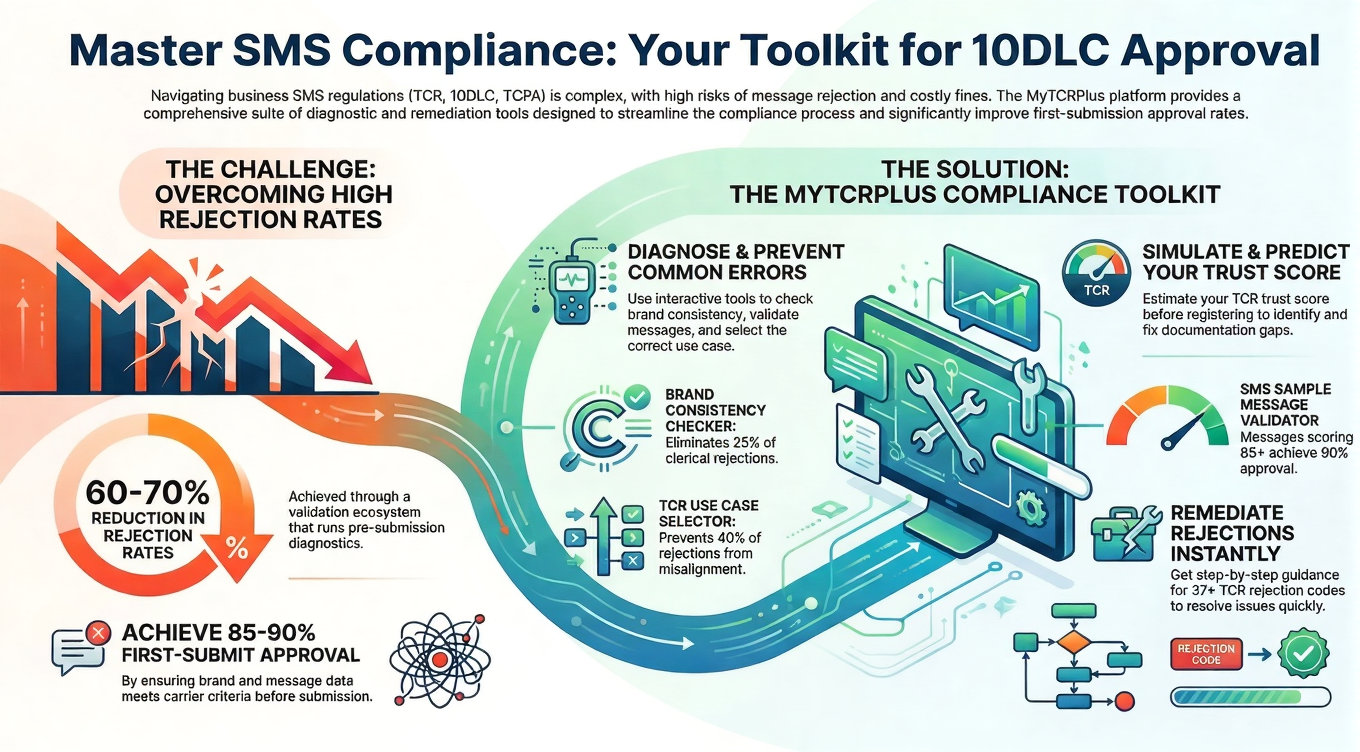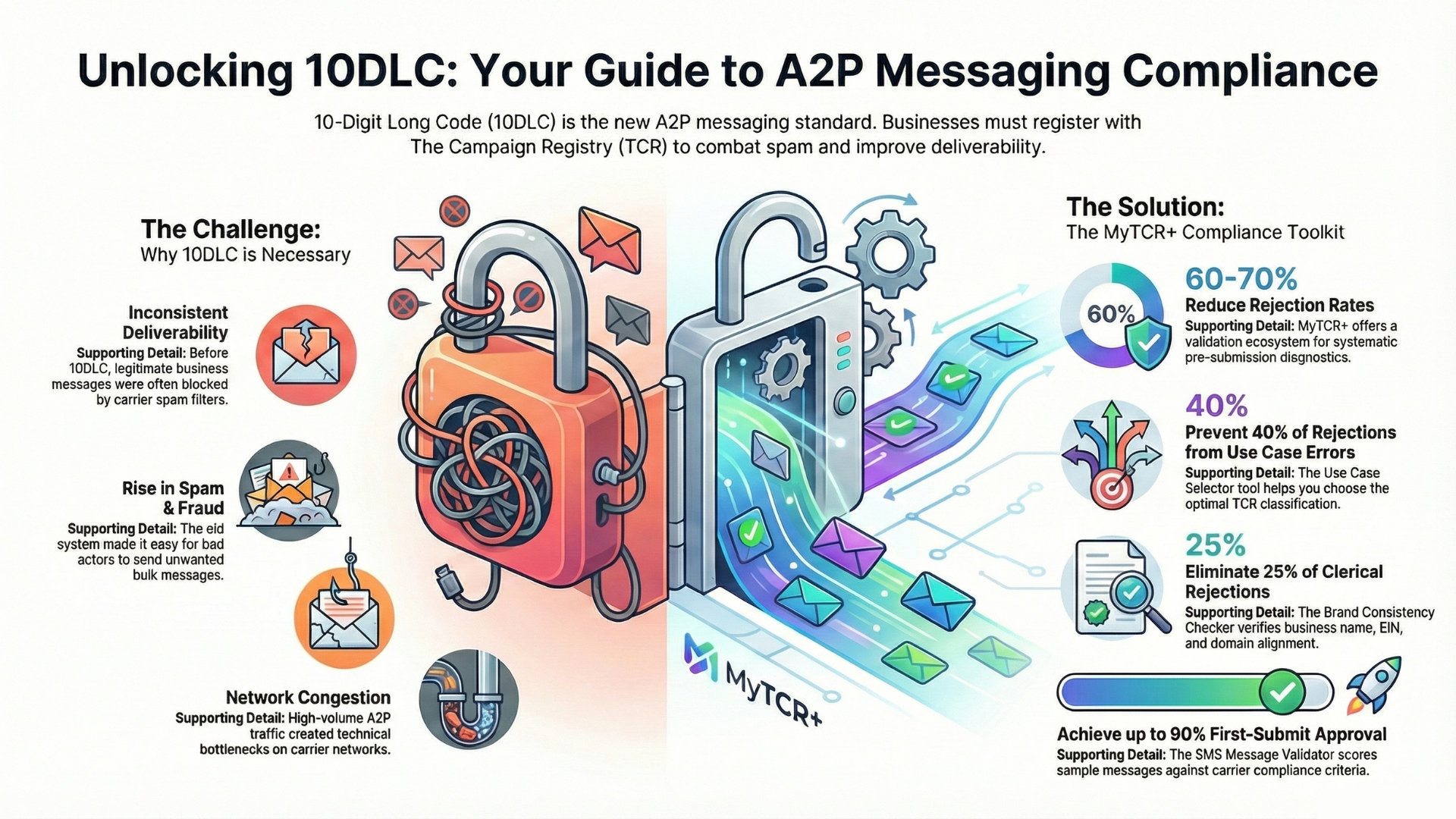![Multi-Brand_Management_TCR_Registration_for_Franchise_Operations_slide_deck_-_no_wm-1[1]](https://mytcrplus.com/wp-content/uploads/2026/01/Multi-Brand_Management_TCR_Registration_for_Franchise_Operations_slide_deck_-_no_wm-11-768x429.png)
![Multi-Brand_Management_TCR_Registration_for_Franchise_Operations_slide_deck_-_no_wm-2[1]](https://mytcrplus.com/wp-content/uploads/2026/01/Multi-Brand_Management_TCR_Registration_for_Franchise_Operations_slide_deck_-_no_wm-21-768x429.png)
![Multi-Brand_Management_TCR_Registration_for_Franchise_Operations_slide_deck_-_no_wm-3[1]](https://mytcrplus.com/wp-content/uploads/2026/01/Multi-Brand_Management_TCR_Registration_for_Franchise_Operations_slide_deck_-_no_wm-31-768x429.png)
![Multi-Brand_Management_TCR_Registration_for_Franchise_Operations_slide_deck_-_no_wm-4[1]](https://mytcrplus.com/wp-content/uploads/2026/01/Multi-Brand_Management_TCR_Registration_for_Franchise_Operations_slide_deck_-_no_wm-41-768x429.png)
![Multi-Brand_Management_TCR_Registration_for_Franchise_Operations_slide_deck_-_no_wm-5[1]](https://mytcrplus.com/wp-content/uploads/2026/01/Multi-Brand_Management_TCR_Registration_for_Franchise_Operations_slide_deck_-_no_wm-51-768x429.png)
![Multi-Brand_Management_TCR_Registration_for_Franchise_Operations_slide_deck_-_no_wm-6[1]](https://mytcrplus.com/wp-content/uploads/2026/01/Multi-Brand_Management_TCR_Registration_for_Franchise_Operations_slide_deck_-_no_wm-61-768x429.png)
![Multi-Brand_Management_TCR_Registration_for_Franchise_Operations_slide_deck_-_no_wm-7[1]](https://mytcrplus.com/wp-content/uploads/2026/01/Multi-Brand_Management_TCR_Registration_for_Franchise_Operations_slide_deck_-_no_wm-71-768x429.png)
![Multi-Brand_Management_TCR_Registration_for_Franchise_Operations_slide_deck_-_no_wm-8[1]](https://mytcrplus.com/wp-content/uploads/2026/01/Multi-Brand_Management_TCR_Registration_for_Franchise_Operations_slide_deck_-_no_wm-81-768x429.png)
![Multi-Brand_Management_TCR_Registration_for_Franchise_Operations_slide_deck_-_no_wm-9[1]](https://mytcrplus.com/wp-content/uploads/2026/01/Multi-Brand_Management_TCR_Registration_for_Franchise_Operations_slide_deck_-_no_wm-91-768x429.png)
![Multi-Brand_Management_TCR_Registration_for_Franchise_Operations_slide_deck_-_no_wm-10[1]](https://mytcrplus.com/wp-content/uploads/2026/01/Multi-Brand_Management_TCR_Registration_for_Franchise_Operations_slide_deck_-_no_wm-101-768x429.png)
![Multi-Brand_Management_TCR_Registration_for_Franchise_Operations_slide_deck_-_no_wm-11[1]](https://mytcrplus.com/wp-content/uploads/2026/01/Multi-Brand_Management_TCR_Registration_for_Franchise_Operations_slide_deck_-_no_wm-111-768x429.png)
![Multi-Brand_Management_TCR_Registration_for_Franchise_Operations_slide_deck_-_no_wm-12[1]](https://mytcrplus.com/wp-content/uploads/2026/01/Multi-Brand_Management_TCR_Registration_for_Franchise_Operations_slide_deck_-_no_wm-121-768x429.png)
![Multi-Brand_Management_TCR_Registration_for_Franchise_Operations_slide_deck_-_no_wm-13[1]](https://mytcrplus.com/wp-content/uploads/2026/01/Multi-Brand_Management_TCR_Registration_for_Franchise_Operations_slide_deck_-_no_wm-131-768x429.png)
![Multi-Brand_Management_TCR_Registration_for_Franchise_Operations_slide_deck_-_no_wm-14[1]](https://mytcrplus.com/wp-content/uploads/2026/01/Multi-Brand_Management_TCR_Registration_for_Franchise_Operations_slide_deck_-_no_wm-141-768x429.png)
![Multi-Brand_Management_TCR_Registration_for_Franchise_Operations_slide_deck_-_no_wm-15[1]](https://mytcrplus.com/wp-content/uploads/2026/01/Multi-Brand_Management_TCR_Registration_for_Franchise_Operations_slide_deck_-_no_wm-151-768x429.png)
The landscape of business messaging has fundamentally changed with the implementation of The Campaign Registry (TCR), creating significant new challenges for franchise operations managing multiple brand identities across diverse markets and customer bases. As SMS marketing becomes increasingly vital for customer engagement, retention, and revenue generation, franchise businesses must navigate the complex requirements of registering each brand separately while maintaining unwavering compliance across their entire network. This imperative has transformed TCR registration from a simple administrative checkbox into a strategic business consideration that directly impacts operational efficiency, customer communication effectiveness, and regulatory standing.
The Evolution of Messaging Compliance and Its Impact on Franchises
To understand why TCR registration poses such complexity for franchise operations, it’s important to recognize the regulatory environment that prompted its creation. TCR emerged as a solution to combat the epidemic of spam and fraudulent text messages that had overwhelmed consumers and overwhelmed mobile carriers’ networks. Before TCR’s implementation, bad actors exploited the relative ease of obtaining phone numbers and sending text messages at scale, flooding consumers with phishing attempts, fraud schemes, and unwanted promotional content.
The mobile carriers—AT&T, Verizon, T-Mobile, and others—reached a consensus that a registry system could help distinguish legitimate business messaging from fraudulent activity. By requiring businesses to register their brands and campaigns, providing clear information about the companies sending messages and the nature of those messages, the carriers could implement more sophisticated filtering and scoring mechanisms. Messages from unregistered or suspicious sources could be flagged, filtered, or delivered with visible warnings to recipients.
However, this solution introduced a layer of complexity that franchise operations cannot afford to overlook. Unlike traditional single-brand businesses where a company operates under one primary identity and sends all messages under that umbrella, franchises operate under a unique structure where corporate headquarters, regional operations, and individual franchise locations may need distinct brand registrations even when they share the same parent company or corporate structure.
This distinction matters profoundly because mobile carriers now scrutinize message traffic at the brand level rather than treating all messages from a company uniformly. A message sent by Pizza Hut corporate marketing goes into a different carrier classification bucket than one sent by an independent franchisee location, even though both represent the same brand. This brand-level tracking means proper registration at the correct level has become absolutely essential for message delivery performance and avoiding costly carrier filtering that can effectively block legitimate business communications.
Understanding Franchise Structure and TCR Requirements
The fundamental challenge in applying TCR requirements to franchise operations stems from the inherent complexity of the franchise business model itself. Most franchise operations involve a corporate parent company that owns the brand, develops the business concept, provides support services, and maintains brand standards. Beneath this corporate entity sits a network of individual franchisees who operate locations under license, using the brand identity but maintaining varying degrees of operational autonomy and local market presence.
This structure creates ambiguity when it comes to TCR registration. Should all messaging be registered under a single corporate brand registration? Should each franchisee register as a separate brand? Should there be a tiered approach where corporate-sent messages use one registration while franchisee-sent messages use another? Should regional groupings of franchisees maintain their own registrations? The answer to these questions has profound implications for operational efficiency, compliance risk, message deliverability, and costs.
For many franchise operations, the first critical decision involves determining whether to register under a single corporate brand or establish separate brand registrations for different franchise concepts. Consider a restaurant group operating both a fast-casual quick-service concept and a fine-dining concept. These brands present themselves very differently to customers, maintain distinct market positioning, develop separate customer bases, and pursue different marketing strategies. The question becomes whether each concept requires its own TCR brand registration, or if they can operate under a unified corporate registration.
The answer typically depends on several factors that franchise leadership must evaluate carefully. First, whether these concepts maintain distinct customer-facing identities separate and separate enough that customers perceive them as different brands rather than variations of the same company. Second, whether they pursue separate marketing strategies with distinct messaging approaches and customer communication styles. Third, whether they target different customer demographics with messaging tailored to those specific audiences. Fourth, whether they have unique messaging use cases—perhaps one brand focuses on delivery promotions while the other emphasizes dine-in experiences and reservations.
When brands operate independently in the marketplace with clearly differentiated identities and strategies, separate TCR registrations often become necessary to ensure message authenticity and maintain appropriate carrier relationships. Carriers evaluate the traffic patterns, messaging frequency, content types, and customer engagement metrics associated with each brand registration. If markedly different brands operate under a single registration, carriers may flag the account as suspicious due to inconsistent traffic patterns, varied messaging content, and mixed customer reception metrics. Separate registrations allow each brand to build its own reputation profile with carriers based on its specific messaging practices and customer response patterns.
The Registration Process: Complexity in Detail
The TCR registration process itself demands careful attention to detail, particularly when managing multiple brand registrations across a franchise network. Each brand registration requires the submission of specific business information including legal business entity names, tax identification numbers, business addresses, ownership structures, authorized representative information, and detailed descriptions of messaging use cases including the types of campaigns the brand intends to send, the frequency of messaging, the customer relationship type, and the purpose of the communications.
For franchisees, this information must be submitted accurately and consistently across all registrations to avoid registration rejections or carrier scrutiny. Franchise operations must develop clear documentation standards and submission processes to ensure consistency while accommodating the unique characteristics of each brand. This becomes particularly challenging when managing territories where individual franchisees maintain operational autonomy yet rely on corporate messaging infrastructure, or where corporate sends messages on behalf of franchisees rather than franchisees sending messages directly.
Many franchise operations discover that they need to maintain detailed registrations that acknowledge corporate oversight while respecting the independent business structure of individual franchisees. A franchisee in Denver operating under a national brand might need documentation explaining that while the franchisee is independently owned, messaging is conducted under corporate standards and the corporate brand registration, with the franchisee’s location information and specific business details included in the registration documentation.
The documentation requirements can seem voluminous and tedious, but they serve important purposes. Carriers use this information to evaluate whether the registering entity is legitimate, whether the business has proper authorization to send messages on behalf of customers or to customers who have provided consent, and whether the messaging use case aligns with legitimate business purposes rather than spam or phishing schemes. Incomplete, inaccurate, or contradictory documentation can result in registration rejection, requiring resubmission with corrections and delaying the ability to send messages legally.
Campaign Verification and Multi-Level Approval
Campaign verification adds another dimension to multi-brand management that multiplies the administrative requirements significantly. Once brands are registered, the actual messaging campaigns require separate approval processes conducted by carriers and industry vetters. A franchise operation running promotional campaigns across three different restaurant concepts isn’t just maintaining three brand registrations—it must obtain three distinct campaign registrations, each tied to its appropriate brand, each with its own set of documentation requirements, and each subject to independent carrier review and approval.
This multiplication of administrative requirements demands robust systems for tracking registration status, renewal dates, compliance documentation, campaign approvals, and messaging history across the entire franchise network. Without systematic tracking, crucial deadlines can slip, registrations can lapse, campaign approvals can expire, and franchisees can inadvertently send messages under expired or unapproved registrations, creating compliance violations and delivery issues.
The campaign verification process typically involves carriers and third-party vetters examining the proposed messaging campaign to assess whether it meets standards. They evaluate factors including the messaging frequency and volume proposed, the content type and whether it matches the use case described during registration, the consent mechanism and proof that customers have provided proper authorization, the opt-out functionality and confirmation that customers can easily unsubscribe, and the template messages showing exactly what customers will receive.
For franchise operations, this verification process must occur at the brand level and potentially at the individual franchisee level depending on whether franchisees send campaigns independently or through corporate infrastructure. A franchisee in Seattle running a local promotion may need campaign verification under the franchisee’s registration and authorization, requiring documentation of local consent, local opt-out management, and local campaign details. This isn’t duplicate work—it’s a fundamental part of the verification process designed to ensure the specific campaign complies with requirements even if the brand registration itself is in compliance.
The Financial Architecture of Multi-Brand TCR Management
The financial implications of multi-brand TCR management extend far beyond simple registration fees and require careful budgeting and strategic planning. Each brand registration carries its own costs, typically ranging from annual fees to per-campaign charges depending on the registry and carriers’ fee structures. These base costs multiply when franchise operations maintain multiple brand registrations and campaign registrations.
Additionally, campaigns running under those brands incur separate charges based on message volume, campaign complexity, or other metrics. A franchise with ten brands each running twenty campaigns annually accumulates substantial fees across registrations and campaigns. These costs scale with business growth—as a franchise operation expands to new markets, adds new concepts, or increases messaging volume, the registry costs expand proportionally.
Franchise operations must budget not just for the initial registration wave—getting existing brands and campaigns registered when transitioning to TCR requirements—but for ongoing maintenance, periodic updates to business information and registration details, renewals before expiration, and the potential need to register additional brands as the business evolves. A franchise expanding into a new customer segment, launching a new brand concept, or entering new geographic markets may need to establish new registrations, each carrying its own costs.
The cost structure makes strategic evaluation essential. Franchise leadership must carefully assess which brands truly require separate registration to justify their costs versus which can operate effectively under a shared umbrella registration. A franchise operation might determine that small regional brands lacking distinct customer-facing identities can send messages under a corporate parent registration, but major national brands with distinct market positioning clearly warrant separate registration despite the costs. These strategic decisions should be revisited periodically as the business evolves and market conditions change.
Operational Challenges in Network-Wide Coordination
Successful multi-brand TCR management in franchise operations requires balancing centralized strategic oversight with the flexibility to address brand-specific operational needs. This organizational challenge tests the management structures of many franchise companies. Corporate headquarters typically benefits from maintaining centralized oversight of all registrations to ensure consistent compliance standards, prevent duplicate work, manage costs efficiently, and maintain visibility into regulatory status across the entire network.
However, corporate centralization must be combined with the authority and ability for regional or brand-specific teams to manage their unique messaging requirements. Franchisees have local market knowledge, understand their specific customer bases, and can optimize messaging for their particular circumstances. This local autonomy, when properly constrained within corporate compliance frameworks, results in more effective marketing and stronger customer relationships than rigid one-size-fits-all corporate messaging.
The balance between these competing imperatives requires clear governance structures and decision-making frameworks. Corporate compliance teams should establish standardized processes for registration, provide templates and guidance to franchisees, maintain oversight of all registrations, handle renewal and maintenance, and monitor for compliance issues across the network. Brand-specific teams should manage campaign strategy within corporate parameters, handle day-to-day messaging operations, respond to performance data and customer feedback, and serve as the interface between corporate systems and local market execution.
This organizational structure means that corporate messaging infrastructure often becomes critically important. Rather than each franchisee maintaining separate TCR registrations and managing their own registrations and campaigns independently, many franchise operations discover that centralizing messaging infrastructure while preserving brand autonomy creates better outcomes. A corporate messaging platform can send messages on behalf of franchisees under appropriate corporate and brand registrations, ensuring consistent compliance while allowing franchisee teams to manage their marketing strategy and content.
Technical Infrastructure and Platform Considerations
Supporting multi-brand TCR compliance across franchise networks requires thoughtful technical infrastructure decisions. Franchise operations need messaging platforms capable of managing multiple brand registrations and campaigns, tracking compliance status and documentation for each registration, applying appropriate brand context and sender identification to messages based on brand registration, maintaining audit trails showing which messages were sent under which registration, handling consent and opt-out management at the brand level, and generating compliance reports for different stakeholders.
Many general-purpose SMS marketing platforms weren’t designed with multi-brand franchise complexity in mind and require significant customization or workarounds to adequately support these requirements. Franchise operations benefit from evaluating messaging platforms specifically designed for multi-brand operations or with robust multi-brand capabilities built in. The platform should treat brand registrations as a first-class concept rather than an afterthought, make it easy to associate messaging with appropriate brand registrations, provide clear visibility into registration status and campaign approvals, and automate routine compliance tasks where possible.
Integration between TCR management systems and broader franchise management systems also matters significantly. When a new franchisee joins the network, automated processes should kick in to determine whether registration is needed, whether existing registrations can serve the new franchisee, or whether new registrations must be created. When a franchisee departs, their registrations should be properly closed or transferred rather than left orphaned. When messaging volumes change dramatically, systems should flag whether current registrations remain appropriate or whether adjustments are needed.
Best Practices for Multi-Brand TCR Excellence
Franchise operations successfully navigating TCR requirements typically employ several best practices that have emerged as particularly effective. First, they invest in comprehensive documentation and process development early rather than trying to manage registrations through ad-hoc processes and tribal knowledge. Clear written processes for registration submission, compliance management, campaign approval, and issue resolution prevent mistakes and ensure consistency across the franchise network.
Second, they maintain strong relationships with carriers and registry operators, treating these relationships as partnerships rather than adversarial interactions. Regular communication, transparency about business practices, cooperation with investigations or audits, and proactive compliance create positive relationships that smooth the registration and approval process and provide carriers with confidence in the franchise operation’s legitimacy and intentions.
Third, they empower compliance leaders with sufficient authority and resources to maintain standards across the franchise network. Compliance officers or departments working without adequate authority or budget struggle to enforce standards when franchisees face pressure to launch campaigns quickly or believe compliance requirements are overbearing. Organizations that position compliance leaders as strategic partners in business development rather than obstructionist gatekeepers achieve better results.
Fourth, they build compliance into franchise agreements and support systems from the outset. Rather than treating TCR compliance as separate from franchise operations, successful franchises integrate compliance requirements into franchise agreements, provide compliance training for franchisees, offer compliance resources and support, and include compliance metrics in franchisee performance evaluations. This integration signals that compliance isn’t optional but is foundational to the franchise relationship.
Fifth, they maintain current registrations and proactively manage renewals rather than allowing registrations to lapse. Many compliance issues stem not from intentional violations but from organizational failure to track renewal dates and complete renewal processes before registrations expire. Implementing systematic tracking, setting reminder notifications well before renewal deadlines, and maintaining renewal checklists prevents accidental lapses.
The Strategic Value of Compliance Excellence
While TCR registration requirements may initially appear as burdensome administrative overhead, franchise operations that achieve compliance excellence recognize the strategic value this creates. Proper TCR registration improves message deliverability by establishing carrier reputation and trust. Carriers treat messages from properly registered, compliant brands differently than messages from suspicious or unregistered sources, prioritizing delivery for legitimate registrations.
Compliance excellence also protects franchise operations from regulatory risk, legal liability, and the operational disruption that accompanies violations or investigations. The cost of litigation, settlements, and operational restrictions from TCR violations vastly exceeds the cost of maintaining proper registration and compliance.
Additionally, franchisees using proper messaging channels with good deliverability achieve better marketing results than those using questionable practices or sending messages that carriers filter. This creates a virtuous cycle where compliance-focused franchises outperform competitors, franchisees achieve better results using corporate systems, and the investment in compliance infrastructure provides tangible business benefits.
Looking Forward: Evolving Requirements and Franchise Strategy
The TCR landscape continues evolving as carriers refine their standards, regulators add new requirements, and the telecommunications industry adapts to changing threats and technologies. Franchise operations positioned for success recognize that TCR compliance isn’t a one-time project but an ongoing operational requirement that demands continued attention, investment, and adaptation.
Successful multi-brand TCR management in franchise operations requires a centralized approach to coordination combined with the flexibility to address brand-specific needs. Corporate headquarters should maintain strategic oversight of all registrations ensuring compliance consistency and managing costs efficiently, while empowering regional or brand-specific teams to manage their unique messaging requirements within established parameters. This balanced approach preserves the authentic voice that makes each franchise brand distinct in its market while maintaining the compliance rigor that protects the entire franchise network. The franchise operations that achieve this balance will be those that thrive in an increasingly regulated messaging environment, maintain strong carrier relationships, deliver effective customer communications, and protect their franchise networks from compliance risk and regulatory action.




